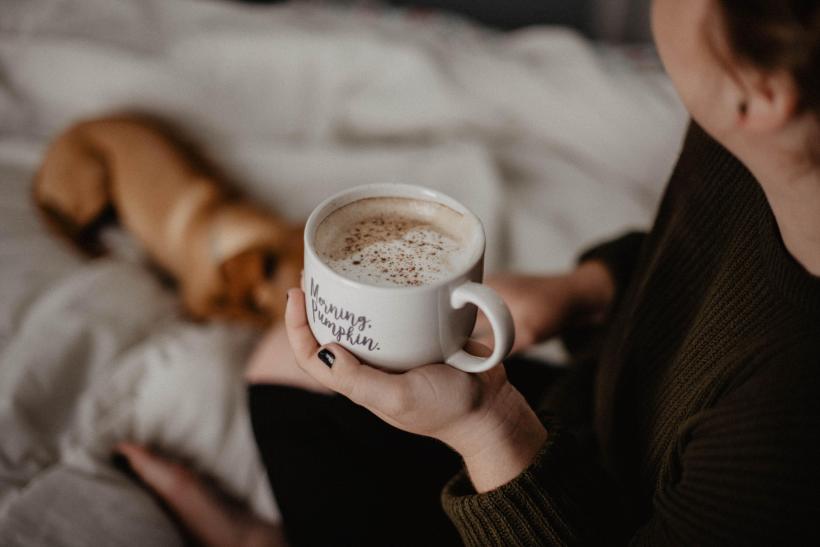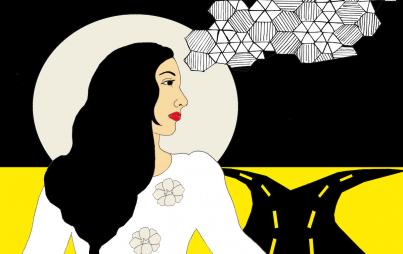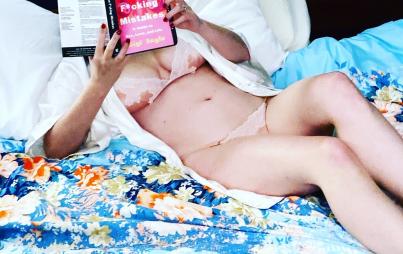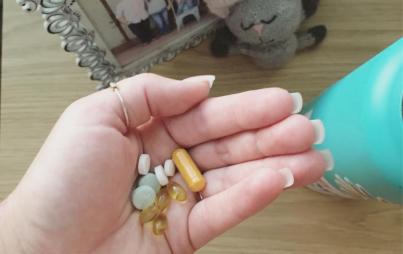
Photo by Samantha Gades on Unsplash
This article first appeared on SHE'SAID' and has been republished with permission.
I first found out about asexuality when I was 19. All throughout highschool I had very little interest in dating or relationships, but it didn’t really bother me. I was quite happy to think of myself as gay — settling for a kind of default ‘not straight’, seeing as though I wasn’t interested in guys — and not worry about the matter any further.
I actually did a lot of queer activism in my school, but even there I didn’t come across asexuality. It wasn’t until I began college that things started to feel a bit different. At that age, relationships and sex seemed to be on everybody’s radar, and there I was still not getting any of it. I started to feel anxious and worried, like something was wrong with me because I wasn’t having the feelings everyone else was having. I dabbled in actively looking for relationships for a while until it became an endless chorus of ‘Here’s a nice new person. Am I attracted to them? No.'
My moment of discovery literally came from googling ‘how to tell if you’re attracted to someone’ late at night. I stumbled across someone else asking the same sort of question and found a reference to asexuality. It clicked instantly, it explained everything — definitely a lightbulb moment.
It was such a relief to find out other people felt, or didn’t feel, the same way.
But at the same time it was kind of terrifying because I became aware that everything I had been taught and thought I knew about sexuality had just been thrown out the window. It was a whole new world, a real paradigm shift, and it felt great.
Most of my friends and family are fine with my asexuality. My father was pretty much on board from the start, but a couple of people – my mother included – were a little sceptical at first, thinking along the lines of ‘Okay, but you still might find the right person’.
My close friends are super supportive, and nothing makes me happier than when someone I know makes some sort of joke that hinges on my being asexual – just not at my expense, obviously. I love that sort of casual acceptance.
You Might Also Like: Finding Love As An Asexual Person
That said, I have had a few negative experiences. There have been people online who are not interested in taking anything I have to say on board, mainly sex-positive feminists who think being asexual is somehow pandering to the patriarchy by trying to suppress women’s sexuality. Then there was a family friend who decided he’d play armchair psychologist with me; he came up with the idea that I was just really repressed and afraid to get close to someone because my parents divorced when I was young. That was actually pretty upsetting, especially because we still had to coexist at gatherings.
While I was at college, I was ‘out’ to pretty much anyone I ever had more than a two-minute conversation with. At the moment, though, I’m a bit more closeted. I have just started a new job and haven’t told anyone about being asexual yet, though there have already been countless opportunities when it would have slotted naturally into conversation. At work it feels like there’s a bit more at stake — if someone decides they don’t like the way I identify, I can’t exactly forget about it the way I would with someone in a social setting, so I’m a bit more cautious about it.
Telling people I’m asexual can be a hard thing to do, because most of the time I can’t just say “Oh, by the way, I’m asexual” and leave it at that.
Nine times out of 10 I’ll have to give them a crash course in asexuality as well, which can get a bit frustrating after a while — especially when people then think it’s completely appropriate to ask me about my sex life or masturbation habits.
When I’m explaining what asexuality is, I usually start by saying an asexual person is someone who doesn’t experience sexual attraction or sexual desire. A lot of allosexual (non asexual) people don’t fully understand what sexual attraction actually means — usually because it’s such a ubiquitous part of their lives that they’ve never had to consciously think about what it means to be attracted to someone, but also because people’s experiences of sexual attraction are much more diverse than they assume.
Asexual people generally distinguish between different types of attraction — most commonly between sexual and romantic attraction.
So many asexuals are still romantically attracted to people, even if they’re not sexually attracted to them.
Personally I identify as aromantic, which means I don’t really experience romantic attraction and I’m not particularly interested in looking for a romantic relationship. I have been in a relationship before, with a partner I loved deeply — just not in a sexual way or one that would be considered traditionally romantic. I’m not really interested in looking for another relationship, at least not for the moment. I won’t reject the idea if I do fall in love with someone again in the future, but I’m not really expecting it to happen, and I’m fine with that.
To be completely honest, living in a time when our society is such a sexual place does often make me feel uncomfortable. Sometimes it’s direct, like when someone tries to hit on me and I just feel like hiding under a rock, or when the anthropology class I took at college tried to tell me sex is what makes us human. Being told you’re not human is pretty uncomfortable, but most of the time it’s just frustrating and alienating.
Sex is also seen as a marker of value in our society — our entire self-worth is often tied up in our sexuality, in how often we’re having sex, in how good that sex is, and if people are attracted to us sexually.
There’s often an assumption that if you’re not having sex, you must be ugly or socially incompetent, and therefore also a failure at life in general.
Take Sheldon from The Big Bang Theory. His lack of interest in sex has been a running joke, a marker of how weird and abnormal he is in comparison to everyone else. But even he eventually has sex, or “finally had sex” as every review reported, as though by having sex he’s suddenly more human, his relationship with Amy is now valid, and his life is more purposeful and fulfilled. That’s the sort of idea author Rachel Hills calls ‘the sex myth’; the idea that sex is somehow the harbinger of truth, the window to our true selves, the most important thing there is. Although I am perfectly happy, content and confident in my asexual identity 98 per cent of the time, in that other 2 per cent, those sort of comments really hurt.
There’s still a lot of stigma associated with being asexual, even though we’ve come quite a long way in terms of awareness and visibility over the past 10 years. Most of that stigma comes from the idea that sex is natural, healthy and ‘part of being human’. That sort of rhetoric is everywhere and it’s part of the sex-positive movement — in books and magazines and on TV.
We’ve come pretty far as a society in terms of accepting sexual diversity and the idea that you can have and enjoy lots of sex without it being a bad thing. Where we haven’t progressed is in accepting that people naturally have very different levels of desire and attraction, and the freedom to have as much sex as we want also includes the freedom to not have sex at all.
Some people think we’re sick and need fixing — be it our hormones or mental health. It’s only recently that hypoactive sexual dysfunction disorder was removed from the Diagnostic and Statistical Manual of Mental Disorders, but female sexual arousal disorder is still in there. People are trying to make medications to ‘fix’ it, like flibanserin, which was approved by the US Food and Drug Administration last year despite its bad side effects and a shockingly low success rate.
The most important thing I wish people would adopt is the knowledge that asexual people are human and diverse, just like everyone else.
Yes, we tend to cluster at one extreme end of the spectrum of human sexuality, but we’re still people, and no two experiences are the same.
The other important thing to remember is that you can’t tell if someone is asexual by what they do. A lot of the time, people get so caught up on whether an asexual person has had, is not having or is having sex, that they forget it’s not about what you choose to do that makes you asexual — it’s the way you’re wired. It’s your basic orientation rather than the exact details of what you might be comfortable doing with a partner in a specific context.








